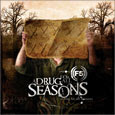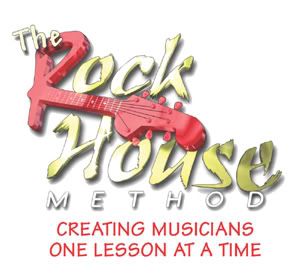Subscribe
Unsubscribe therockhouse
June 15, 2009
(more info)
(less info) Want to Subscribe?
Sign In or Sign Up now!
In this guitar lesson Rock House instructor Rusty Cooley talks about 12 Not Split Patterns. Lesson comes from his Rock House program Fretboard Autopsy Level 2. www.RockHouseMethod.com
9.12.2009
Rusty Cooley from his Rock House DVD Fretboard Autopsy Level 2
4.13.2008
Playing YOUR Music
What’s up my fellow players? We had a great live chat here at Rock House Method on March 19. Thank you for everyone who joined us. Also, a big thanks to Peavey for helping sponsor the event as a couple of you won one of my Peavey Zodiac DE signature basses and also a Peavey Max 112 bass amp. Cool stuff!
Moving forward I want to continue my thoughts on developing YOUR own style. As many people often ask how I developed my style, my answer is usually “this is just how I play, not necessarily how YOU should play!” By that, I mean that we can all listen to, be fans of, and learn from most anyone if our minds are open. However, we are all gifted in unique ways and if we let our personalities and tastes be the driving force for our music (not the other way around!) then our music will be honest, and the listener will feel a genuine connection when they hear or see us play. That is why our music usually changes as we grow and mature because as a person we are changing, too.
I say this because I meet many people who are great fans of certain types of music, which can be a great indicator of a musical path they will follow, but sometimes their talents lie in a different genre. Then, they get frustrated if they can’t execute the music they like to listen to. This is not something to be ashamed of but rather something to embrace. I meet professionals all the time who love Metal music but play professionally in Pop, Country, Christian and other styles 180 degrees away from most things heavy and rocking. To me, they are going with the flow and letting the music guide them (and the people calling them to play!) rather than sitting on the sidelines insisting they must have it “their way or the highway”. In other words, they are in the game and enjoying the craft of making music.
So, keep those ears, eyes and minds open especially if you have opportunities to play with a multitude of different musicians in varied applications. Those opportunities can be vital to our growth and give us the nudge to get out of our comfort zone and play in any setting with true confidence.
12.07.2007
Favorite Songs
It has been argued that “all of life is energy”. Music is certainly that, especially if you consider the science of strings vibrating to move air which in turn creates sound. Music is really just energy in motion which either resonates harmoniously with us or uncomfortably against us. That would explain why some people wake up to Rock n’ Roll songs in the morning but go to bed with Classical music to soothe their nerves and relax for the evening.
In the creative process, when any two or more musicians are working together, the chemistry and ‘vibrations’ in the room can change and steer us in different directions as we create music together. With this said, our musical encounters are priceless moments that go beyond just a jam session, rehearsal or gig and can explain why ‘vibe’ or chemistry between musicians is so crucial to making great music. That vibe can also change in a group setting, especially after extended periods of time.
Therefore when working together be cognizant of those things not spoken between musicians but rather for those things communicated kinetically without words; things like the singer hinting that he is going to do a double chorus, the guitarist wanting to take a lead solo after the second chorus, or even the drummer using crescendos to signal a change in the song's arrangement or feel of a section in the tune. Or, how about when the whole band just lays into a killer riff or groove and no one deviates out of it because it feels so good to circle the riff over and over again?
No two gigs, recordings or even rehearsals are the same which is why I encourage recording ourselves at every opportunity we can. I think this is vital to capturing those unguarded moments of creative magic we all stumble into.
So bust out those iPods, digital recorders or Pro Tools rigs when possible to listen back to your creativity. You never know when your moments of genius might strike and deliver something you may want to hear over, and over again…maybe for many years to come on a record of your own!
Rock on!
David

